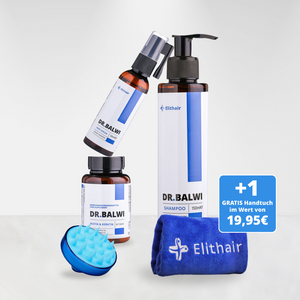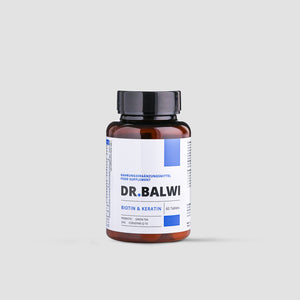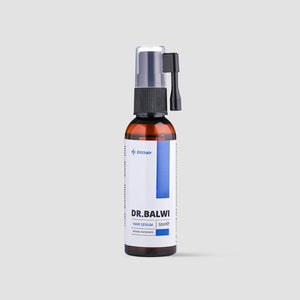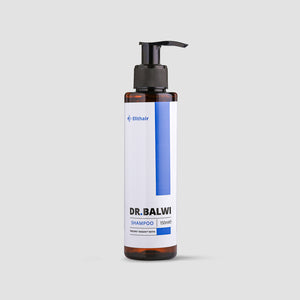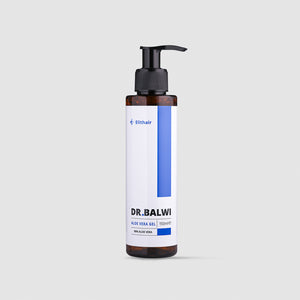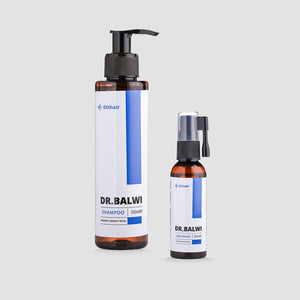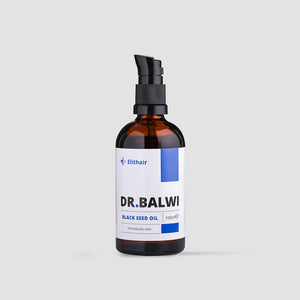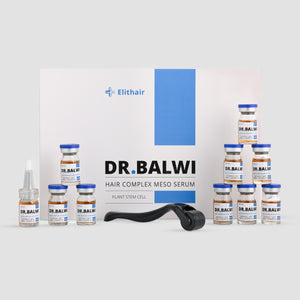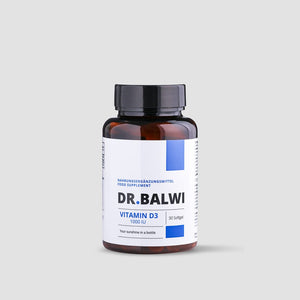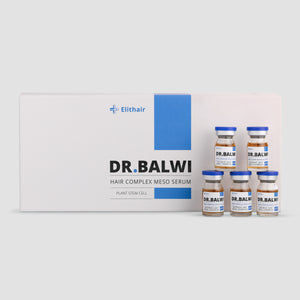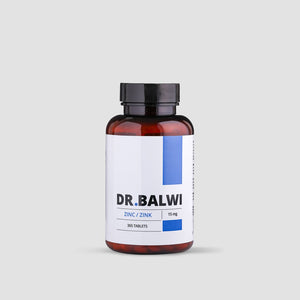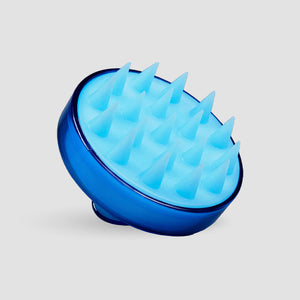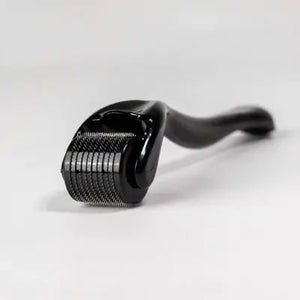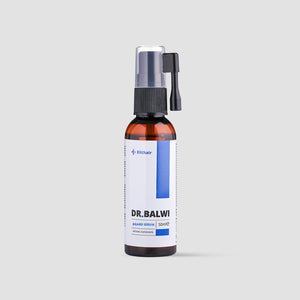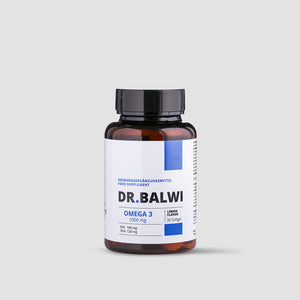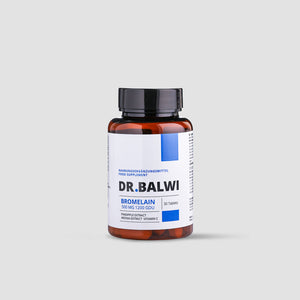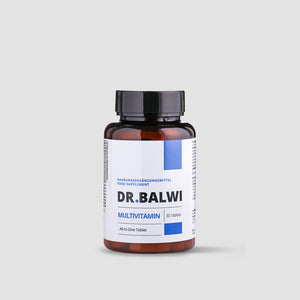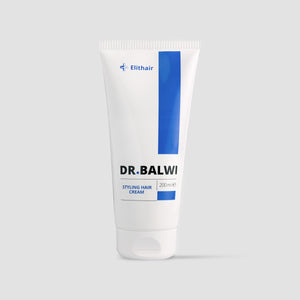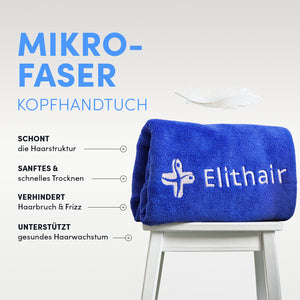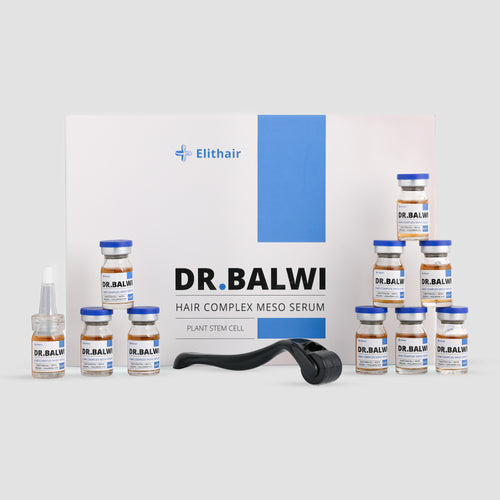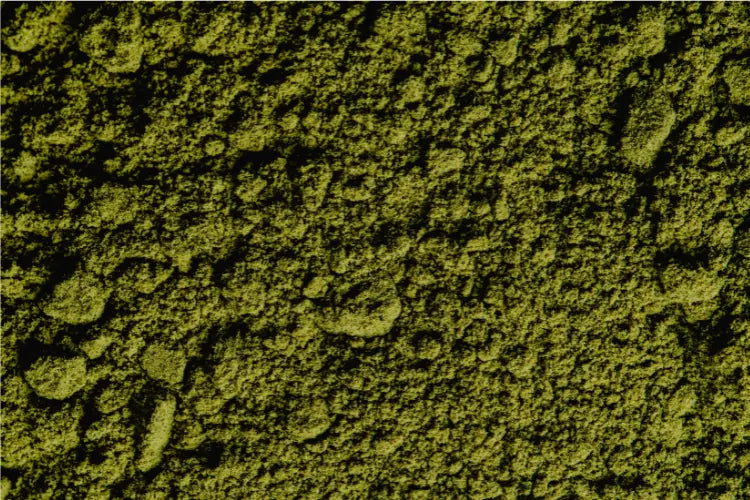
Matcha: Superfood for Health or Hidden Factor in Hair Loss?
For several years now, matcha has been a staple in the daily drinks of many people. While the green tea powder boasts many health benefits, are there downsides we should be aware of too?
This article explores the duality between the benefits generally attributed to matcha (antioxidants, energy, concentration) and the potential risks linked to excessive consumption, particularly in relation to hair health. We'll be taking a look at the good, the bad, and the science behind it all with expert insights from Dr. Balwi Shop dermatogologist, Dr. Rabia Yamak.
Popularity with Gen Z

The Known Benefits of Matcha
Matcha's recognized properties come mainly from its polyphenols —particularly epigallocatechin gallate (EGCG) —with powerful antioxidant effects. These help combat oxidative stress, a factor involved in the premature aging of hair follicles. Matcha also contains L -theanine, an amino acid that promotes relaxation and can mitigate the impact of psychological stress. Finally, its metabolic effects, linked to a slight stimulation of thermogenesis, are being studied in the context of weight control and energy metabolism.
Matcha and Hair Loss: Insight From Dr. Rabia Yamak, Dermatologist at Dr. Balwi Shop

Is there any scientific evidence linking matcha consumption to hair loss?
"To date, there has been no solid scientific study demonstrating that consuming matcha or green tea directly causes hair loss. Quite the opposite: thanks to its polyphenols – particularly epigallocatechin gallate (EGCG) – with powerful antioxidant properties, matcha could actually help protect hair follicles against the effects of oxidative stress."
Can the caffeine in matcha have a positive or negative effect on hair health?
Caffeine, when applied topically (in shampoos, lotions, etc.), can counteract the negative effects of DHT (dihydrotestosterone) on hair roots and prolong the anagen phase (hair growth phase). However, when consumed orally, this effect is less certain. Excess caffeine can have indirect negative effects via circulation and hormonal pathways.
By what biological mechanisms could matcha influence hair loss?
Oxidative stress: “Matcha is rich in antioxidants, particularly EGCG, a molecule capable of reducing oxidative damage. By limiting this cellular stress, it can help protect hair follicles and maintain their function.”
Hormones : "When consumed in excess, matcha—via its caffeine content—can lead to an elevation of the stress hormone cortisol. Excessive cortisol production is sometimes associated with telogen effluvium, a temporary hair loss triggered by stress."
Blood Circulation: “The caffeine in matcha also has a mild vasodilatory effect. It can therefore promote microcirculation in the scalp and improve the supply of essential nutrients to the follicles.”
Who Should be Careful With Matcha?
While matcha is generally well tolerated and safe for hair health when consumed in moderation, certain populations should remain vigilant:
People genetically predisposed to alopeci: Excessive caffeine can accentuate certain hormonal mechanisms linked to hair loss. However, normal matcha consumption (1 to 2 cups per day) is not considered risky.
Patients with cardiovascular disease or hypertension : Caffeine can affect blood circulation and should be monitored in this context.
Pregnant or breastfeeding women: it is recommended to limit caffeine consumption, including matcha, in order to respect safe levels for the mother and child.
Patients undergoing chemotherapy or immunosuppressive treatments: a medical consultation is essential before consuming it, due to possible drug interactions and increased sensitivity.
Apart from these specific situations, matcha can be safely incorporated into a daily routine, always respecting the rule of moderation.
Matcha Can be Drunk Without Any Effect on the Hair, but in Moderation

Drinking matcha can be safely incorporated into a daily routine as long as it is consumed in moderation (1 to 2 cups per day). Safer than energy drinks, it provides protective antioxidants while being part of a balanced lifestyle: regular sleep, a healthy diet, and essential nutrients (biotin, vitamin D, iron, etc.). For those predisposed to alopecia, matcha should be considered a complementary support, not a threat to hair health.
